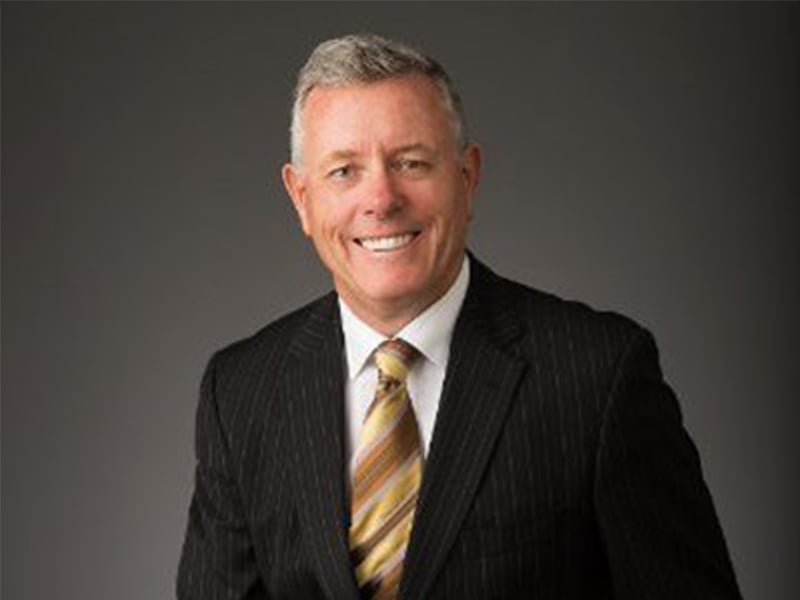Austrade staff were reeling in shock last night after recently-appointed CEO Stephanie Fahey began a major bloodletting at the organisation with three of most senior executives set to leave within weeks.
Grame Barty and Jane Madden, will join Philippa Dawson – who has recently announced she would leave at the end of the month – in quitting the government’s trade overseas trade and investment marketing arm.
Mr Barty will leave his post as Executive Director, International after just 13 months in the role and less than four years at Austrade, after he joined from the private sector.

He takes with him deep experience in the technology sector – he was chief executive of Australian software group Harvest Road – that has become a fresh focus for Austrade since Prime Minister Malcolm Turnbull launched National Innovation and Science Agenda in December 2015.
Mr Barty was acting Austrade CEO ahead of Ms Fahey’s appointment, and is understood to have interviewed for the top job.
Ms Madden is Austrade’s Executive Director, Tourism, Investment, International Education and Programs Group, and Ms Dawson is Austrade’s chief operating officer, both will depart at the end of the month
All three executives are highly regarded within the organisation and insiders say their abrupt departure will leave a huge hole in senior experience.
One inside view is that Ms Fahey is moving to try and de-bureaucratise the organization.
A longstanding criticism of Austrade is that it spends too much time catering to Ministerial whims – or ‘managing up’ as the expression goes – instead of focusing on supporting Australia’s exporters.
It is seen by some to have consistently lagged behind its peer trade organisations in Western Europe, North American and, other developed Asian nations such as Japan, South Korea and Singapore, as well as – perhaps most gallingly – New Zealand
Observers suggested that the “nuclear option” that has been exercised by Ms Fahey would have ramifications beyond Austrade, into the public sector more generally.
As one such observer noted, such executive cleanouts are common enough in the private sector as CEOs bring in their own people, but much less common in the public sector, this may have more than a few people in the public sector looking over their shoulders.
Perhaps it’s also a targeted blow at Austrade’s well known obsession with risk mitigation at the expense of actually getting stuff done.
But others are concerned that she is trying to reshape Austrade as more of consulting style organisation.
Ms Fahey, who has the rare distinction of being fluent in Melanesian Pidgin, was formerly the lead partner for education in the Oceania region for EY.
Prior to that was an academic, at times holding the posts of deputy vice-chancellor (Global Engagement) at Monash University and as director of the University of Sydney’s Research Institute for Asia and the Pacific.
There were some eyebrows raised when Ms Fahey was appointed due to her lack of commercial experience in an organisation that had prioritised, under Mr Gosper, bringing in outside talent with experience in the commercial world.
Ms Fahey is the first woman to run Austrade, taking over from Bruce Gosper, who was appointed as Ambassador to Singapore, Australia’s major trading partner in Southeast Asia and whose tenure at Austrade had been seen as that of a safe pair of hands.
In a note to staff sent yesterday from Ms Fahey, a copy of which was obtained by InnovationAus.com, after gushing about the executives she had seen off said in some measure of understatement: “I understand that Grame’s , Jane’s and Pip’s departure may be unsettling for many of you…” before expressing the usual confidence in the organisation’s prospects for the future.
The senior executive departures add to a deal of unease over Ms Fahey’s management of Austrade among staff. Of particular concern to some is her focus on a ‘virtual’ strategy for Austrade, a key plank of an internal policy statement circulated in April.
It is understood that she has queried, to staff members, why Austrade needs to be in so many places in China, by far Australia’s largest trading partner and one of the country’s largest foreign investors “when we can do it on WeChat” (referring to China’s ubiquitous mobile chat cum-communications platform and e-commerce application.)
There is further, growing disquiet more generally at the Department of Trade about the government’s relentless focus on Free Trade Agreements over providing more tangible support from Australian exporters.
The latest and borderline bizarre FTA negotiation announced by Australia’s Trade Minister Steve Ciobo is a deal with Hong Kong, even as Communist Beijing’s grip grows increasingly tight on the Special Administrative Region. This has led a growing number of experts to conclude that the promise of “one country, two systems” is rapidly fading.
What remains to be seen, as one considers the very middling history of Austrade, whether this is one of the organisation’s one step forward, or two steps back.
Do you know more? Contact James Riley via Email.

